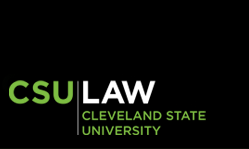Volume
67
Abstract
In Janus vs. AFSCME, a closely-divided U.S. Supreme Court overturned a 41-year-old precedent and ruled that the practice of public sector unions charging agency fees to non-members in bargaining units, without affirmative consent, was “compelled speech.” The dissent warned that the decision had weaponized the First Amendment, and noted that “almost all economic and regulatory policy affects or touches speech.”
Does the logic of Janus apply to mandatory bar association dues? There is strong evidence it does. And if it signals the death of mandatory bar associations, would that necessarily be a bad thing for the legal profession? This essay examines the evidence, particularly as it involves the author’s own licensing jurisdiction of the state of Washington, and makes the argument that the traditional bar association model is a thing of the past.
Recommended Citation
Brendan Williams,
Does Janus vs. AFSCME Signal the Death of Mandatory Bar Associations?,
67 Clev. St. L. Rev. Et Cetera
1
(2019)
available at https://engagedscholarship.csuohio.edu/etcetera/vol67/iss1/1
Included in
First Amendment Commons, Legal Profession Commons, Supreme Court of the United States Commons
